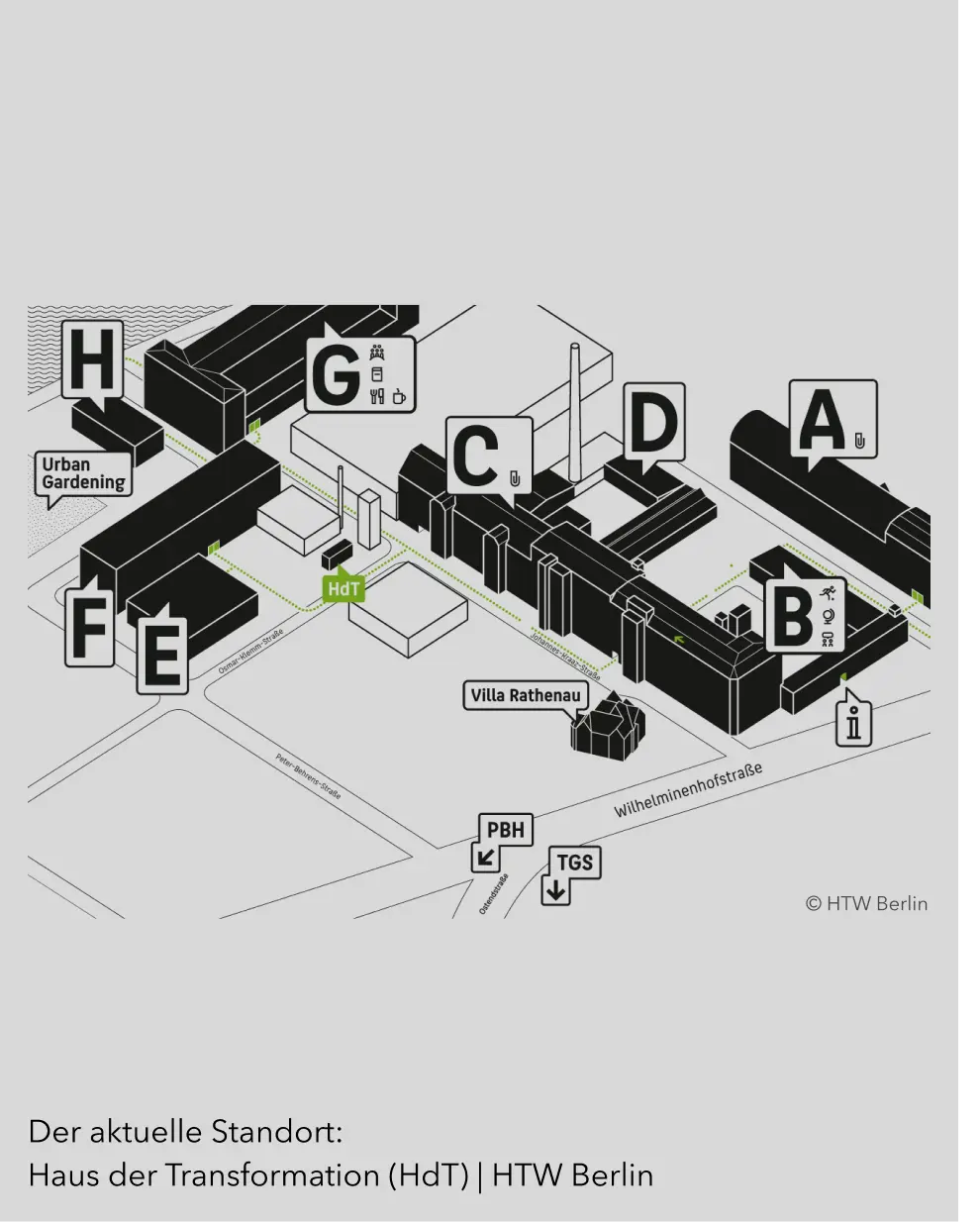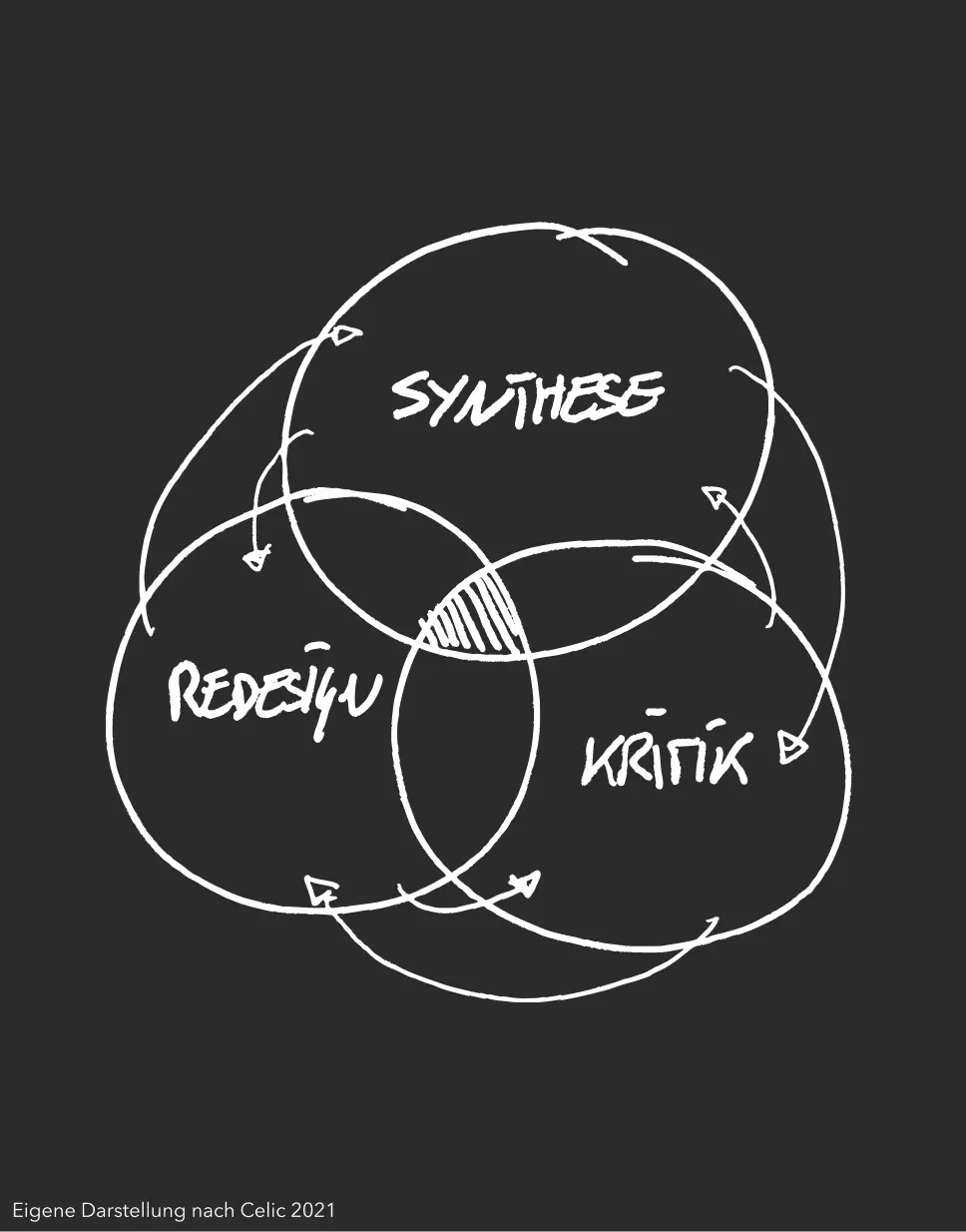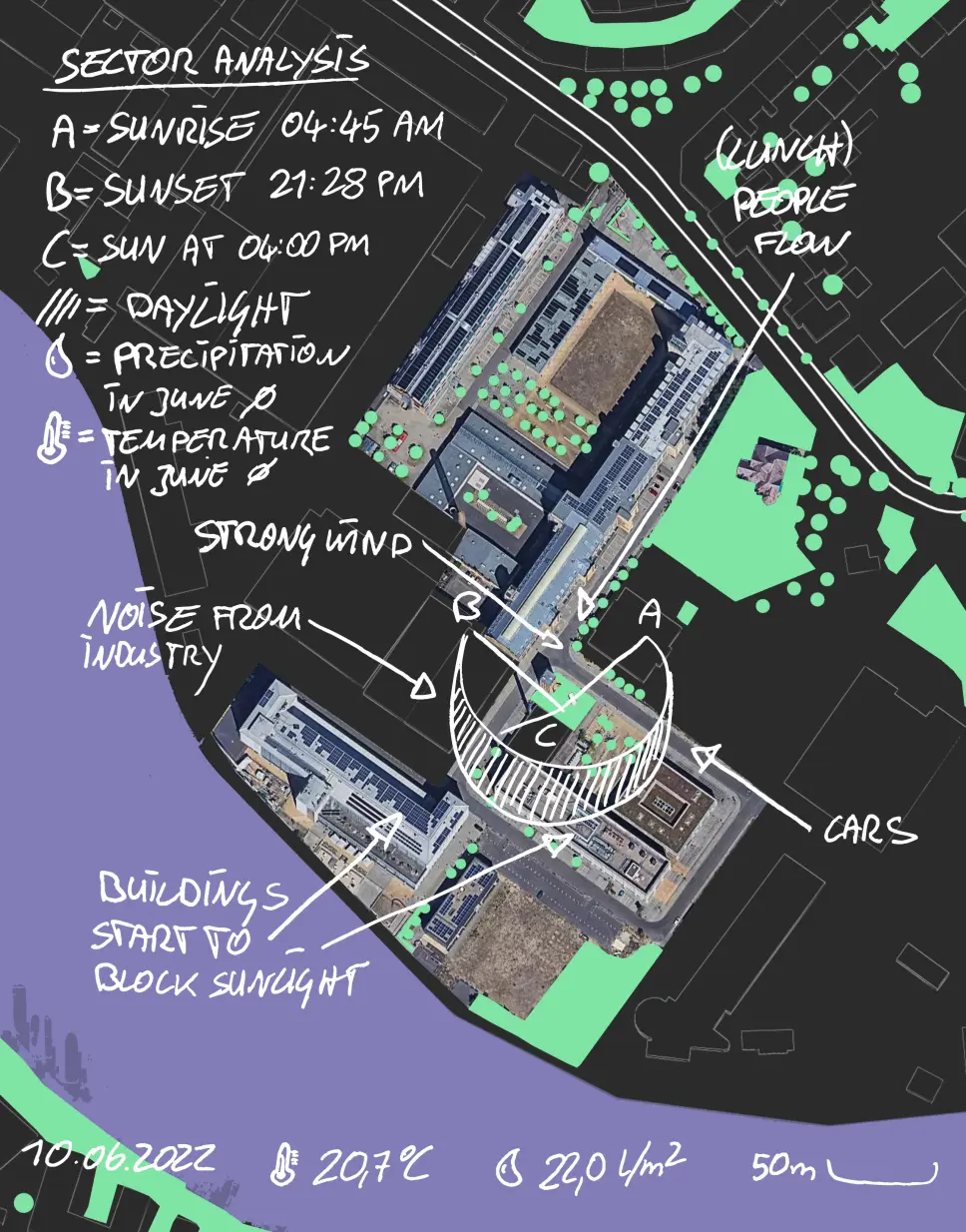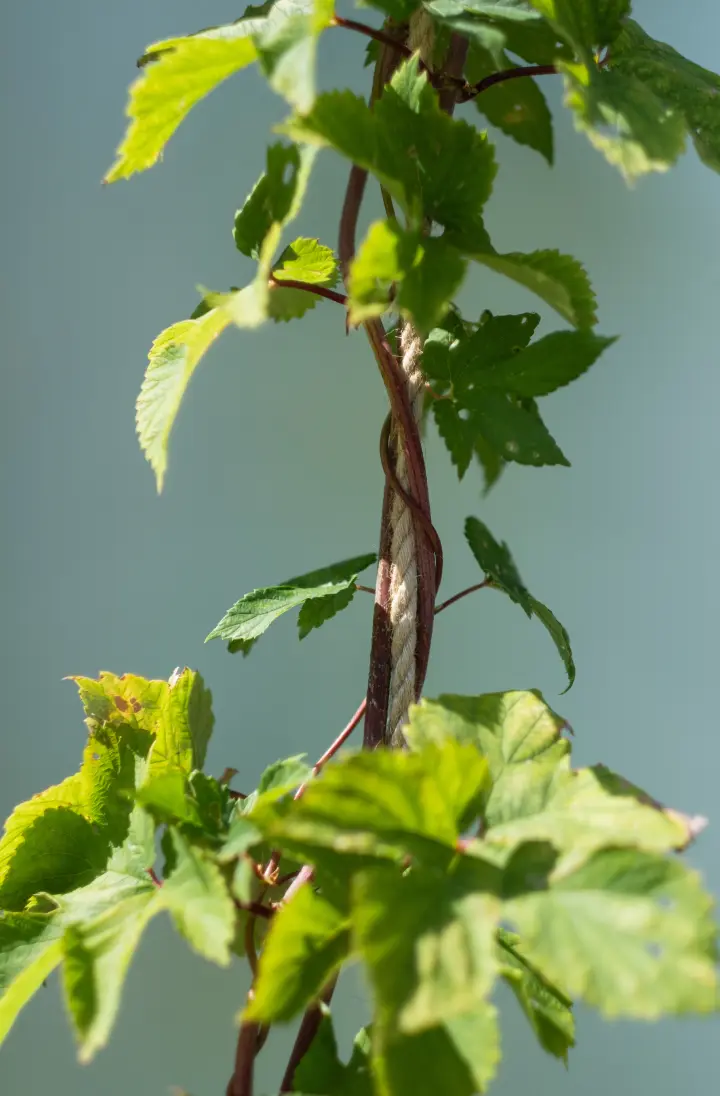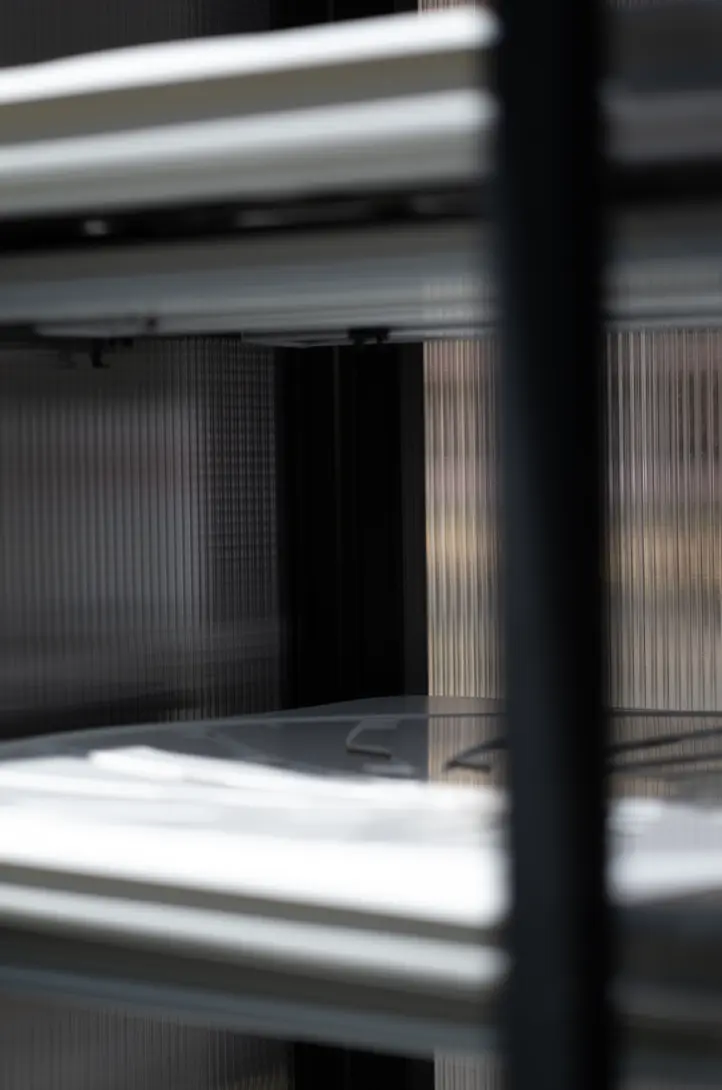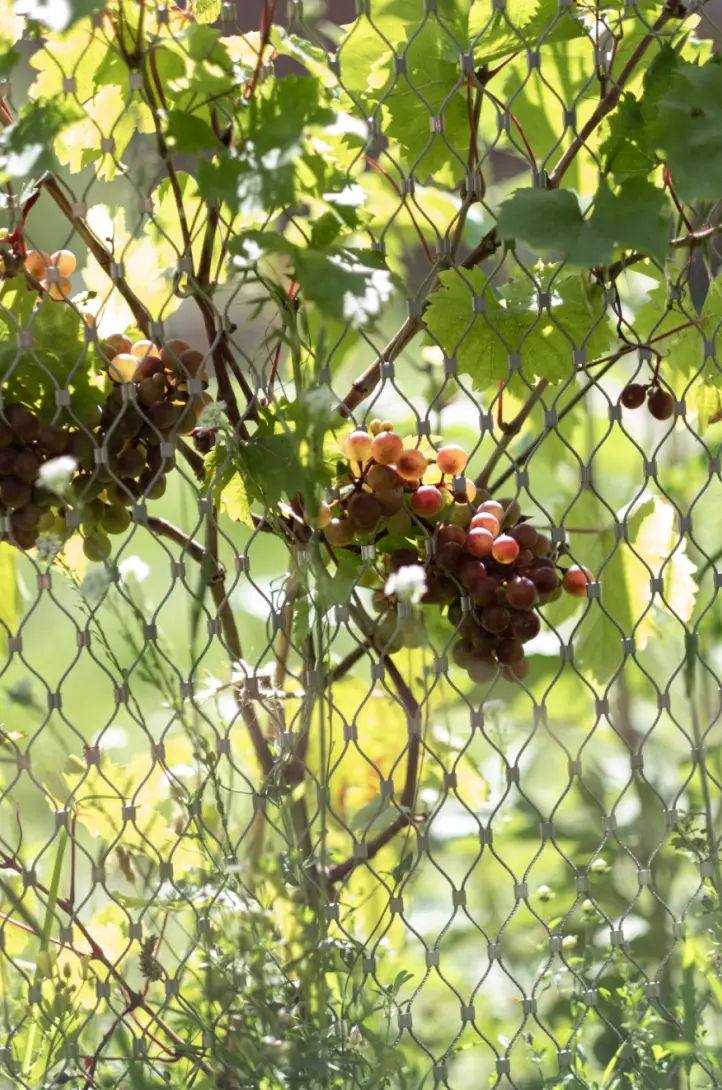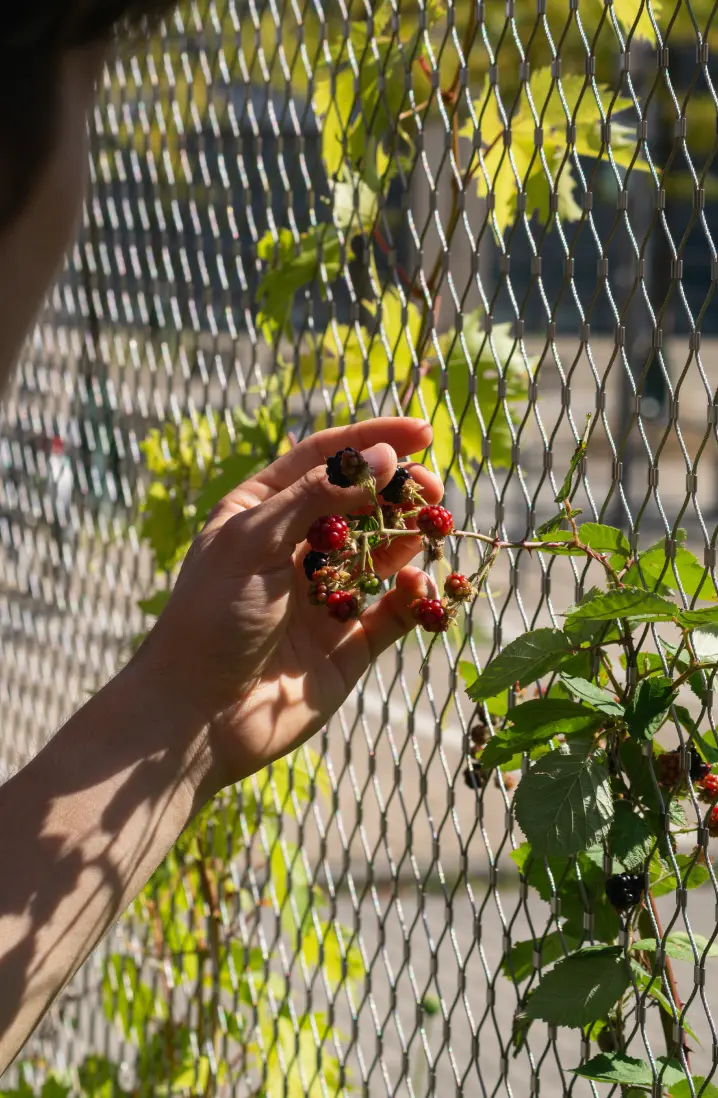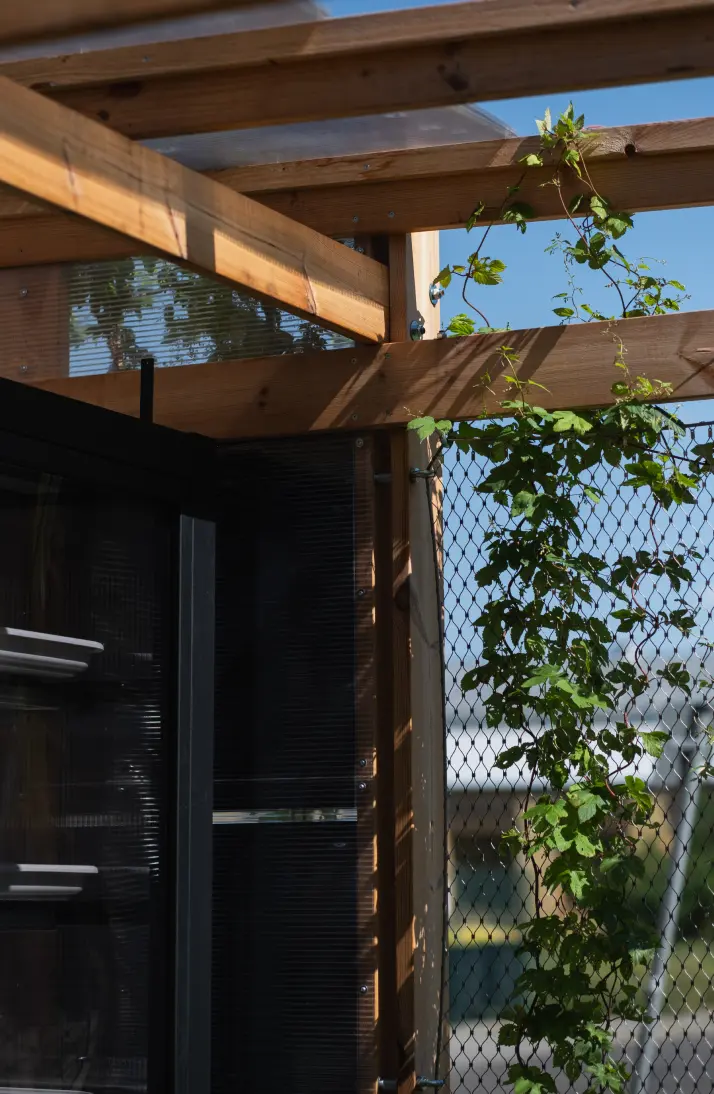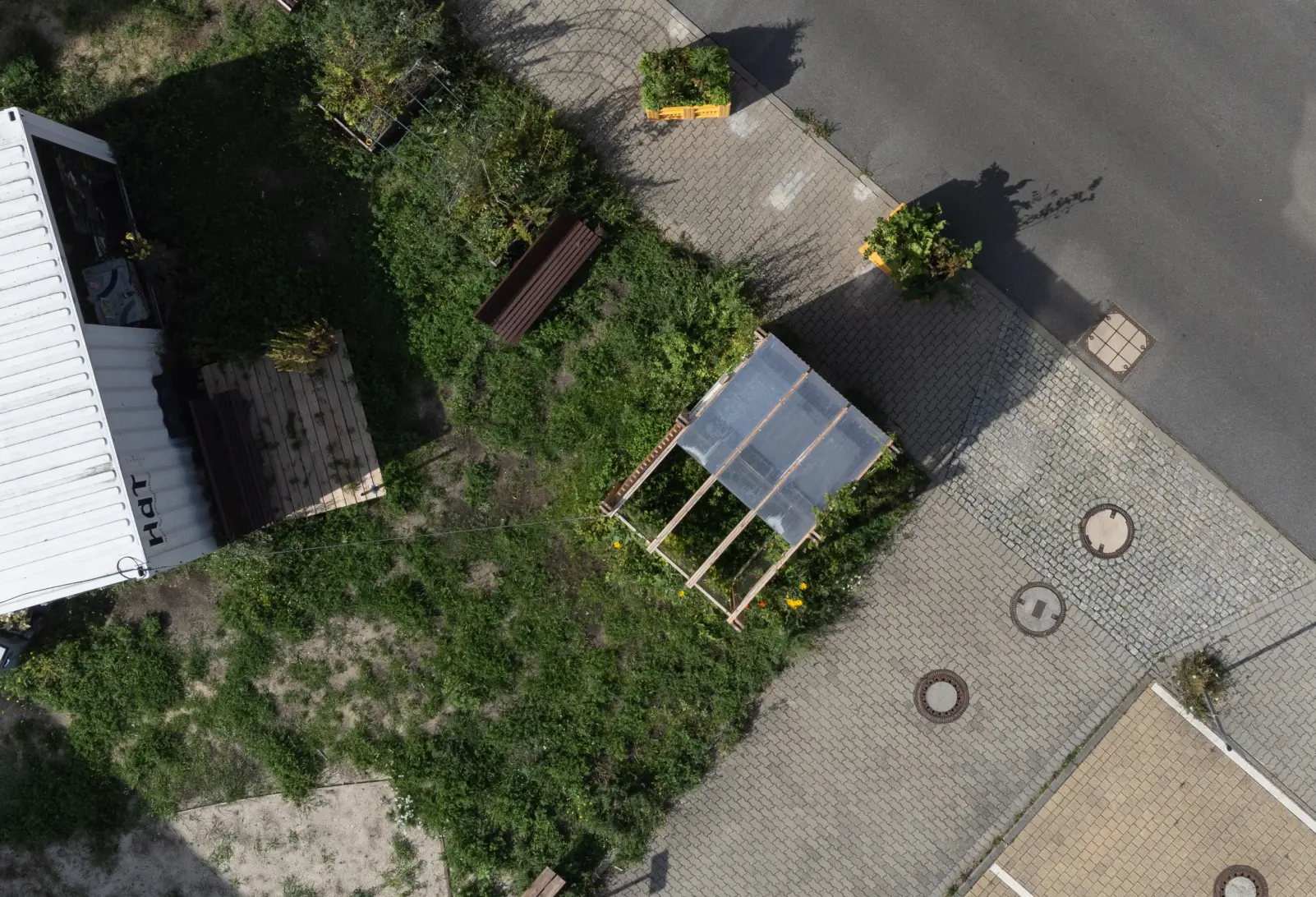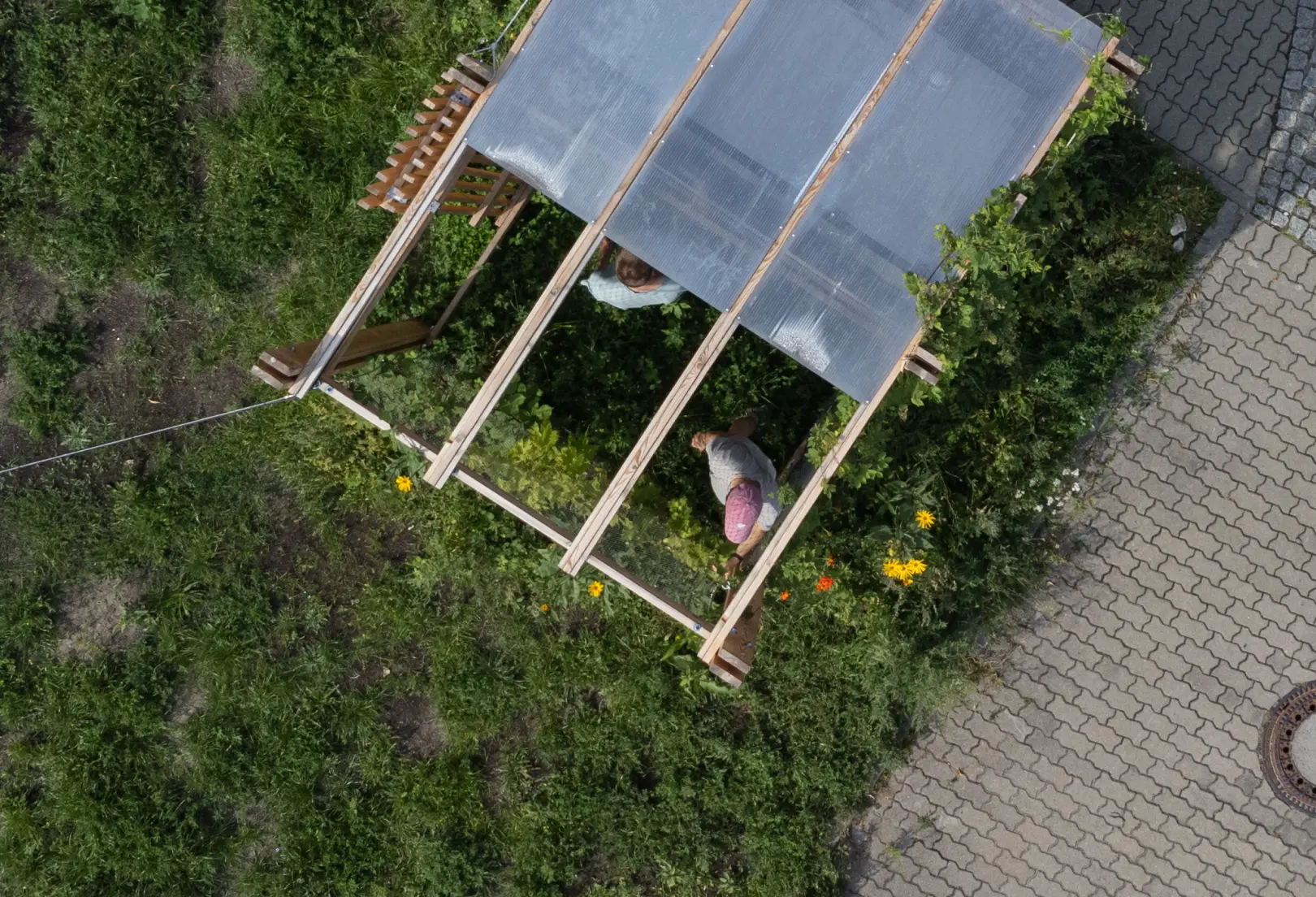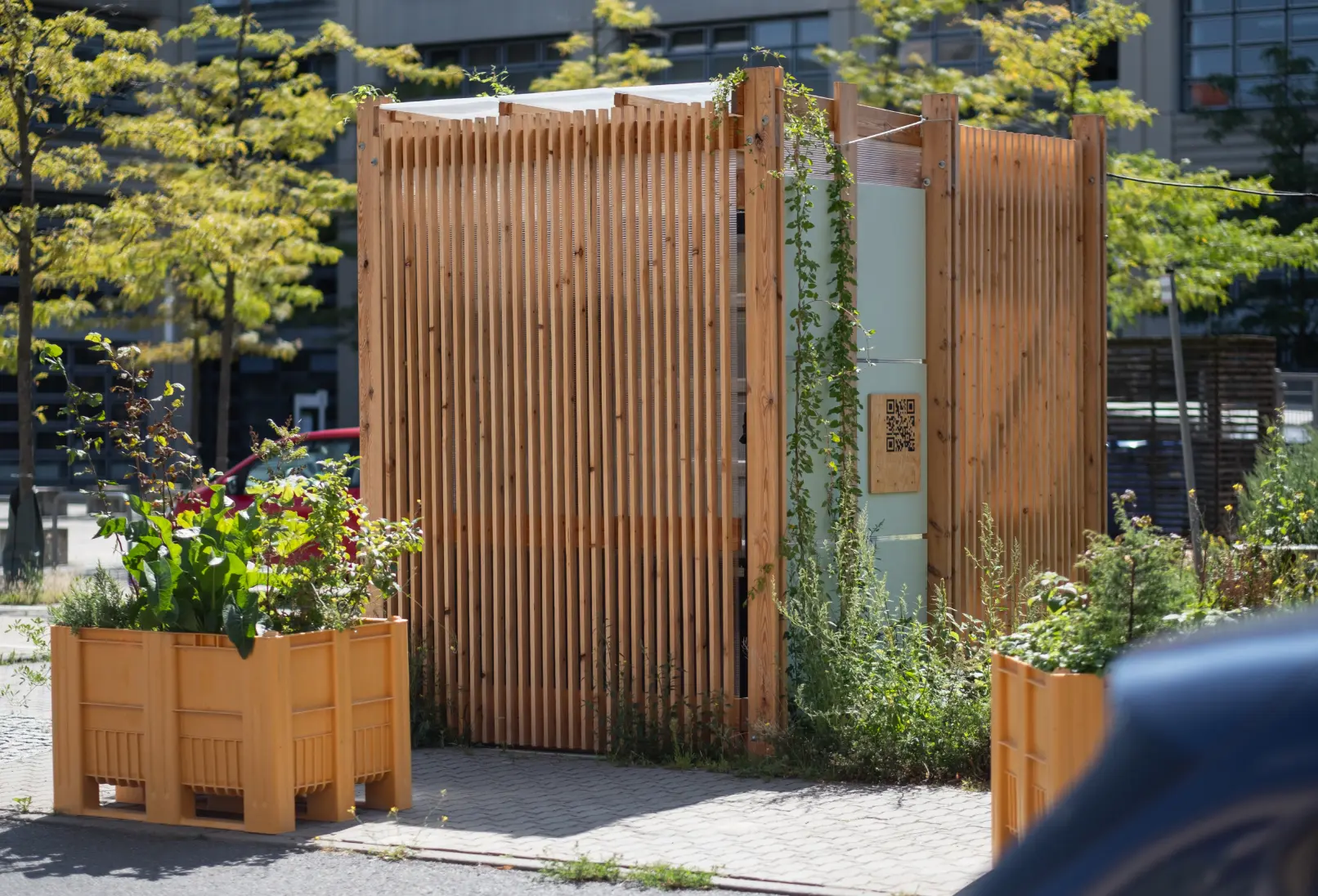eating walls.
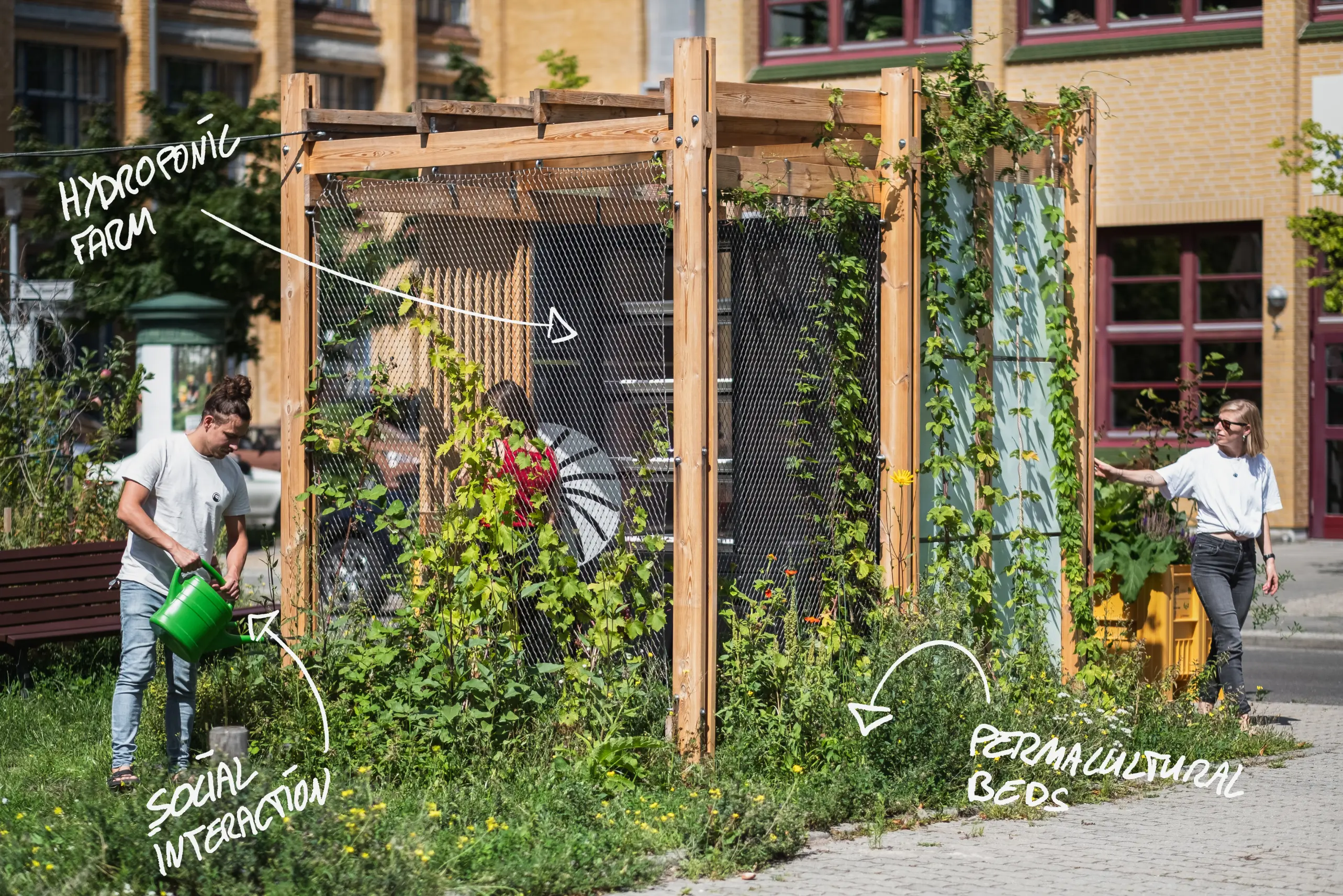
about
What are the effects of urban food production on the goals of the current food system?
To what extent does urban food production reshape the cityscape, and how pronounced is its impact on the fabric of our daily lives?
The urban transition lab — eating walls — questions the physical and mental separation of social, technological and ecological systems and bridges the gap by creating an experimental space that focuses on urban food production. The aim of this participatory intervention is to stimulate a public exchange about food cultivation in cities, expectations and needs of citizens. It unites the ideologically separated cultivation principles of technological and naturally supported urban food production. The space facilitates this by containing a hydroponic indoor farm on one half, while the second half gives space to people and the ecosphere. The permaculture-inspired food production consisting of ground cover and climbing plants, encompasses the created room more and more over time. The plants growing outside are both figuratively and practically able to pierce into the inside, thus allowing for interaction between the seemingly separated spaces. This visually illustrates the installation's base as a vital ecosystem, facilitating life-sustaining services.
Through the activities of city dwellers, eating walls reaches its full potential. Human-nature-interaction and human-technology-interaction is possible almost simultaneously. This way, abstract and complex interrelations become tangible in a very dense urban space.
The design of this immersive experience explores how co-profits can be established through symbiosis, how local circularity can be established and what it takes to accomplish a paradigm shift towards regenerative actions. Now, multiple goals are being pursued by urban food production without being perceived as disconnected: yield (economic thinking, food security), environmental education (understanding of nature), self-efficacy (knowledge to action) and the regeneration of the natural ecosystem (foster biodiversity).
